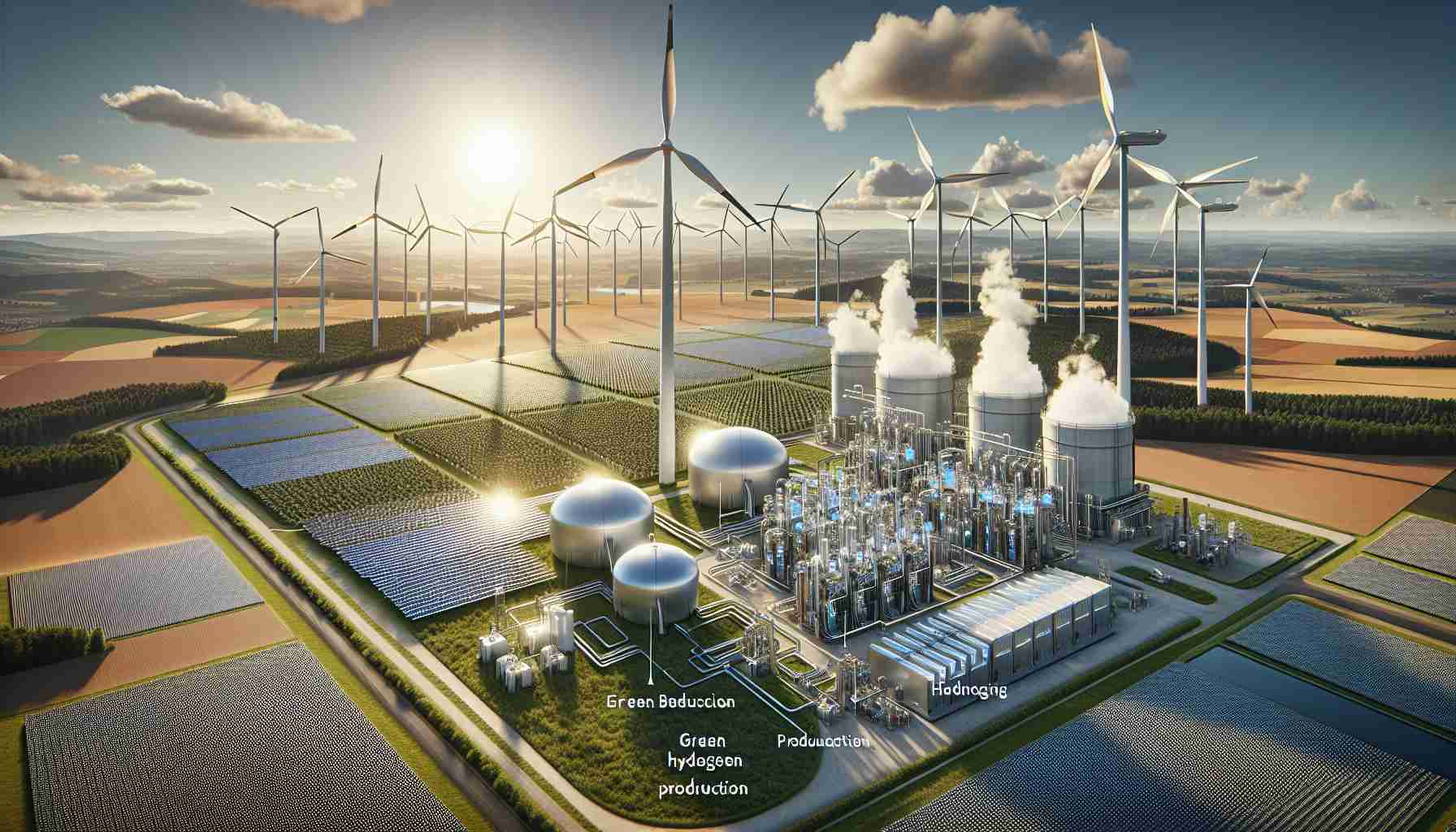Germany is making significant strides in sustainable energy production with the launch of a powerful hydrogen generation facility in Lingen, Lower Saxony. This initiative is part of a broader movement aimed at reducing carbon emissions and promoting cleaner energy sources across Europe.
The new hydrogen plant, developed by RWE, boasts a capacity of 300 MW and signifies a major advancement in the quest for green energy. Though initially focused on supplying the Lower Saxony and North Rhine-Westphalia regions, plans are in place to expand its reach throughout Europe. This aligns with the ambitious European Hydrogen Backbone project, designed to establish a comprehensive hydrogen distribution network across the continent.
Crucially, the Lingen facility has been designed to meet European Union climate targets, making hydrogen more accessible to consumers. This shift in energy production is particularly pertinent as electric and hydrogen-powered vehicles gain popularity.
In collaboration with Sunfire, RWE is also working on an innovative 100 MW alkaline electrolyzer expected to be operational by 2027. This technology is set to play a vital role in hydrogen production, capable of generating two tons of hydrogen per hour, thus supporting both industrial demands and eco-friendly regulations.
The implementation of solar and wind energy sources to power the electrolyzer underscores Germany’s dedication to renewable energy. Hydrogen stands out as a clean energy option with minimal environmental impact, offering a promising future in the European energy landscape.
Unlocking the Future of Energy: Tips, Life Hacks, and Interesting Facts about Hydrogen and Sustainability
As Germany paves the way for sustainable energy through innovative projects like the hydrogen generation facility in Lingen, there’s much we can learn and apply in our daily lives regarding energy conservation and sustainability. Below are some tips, life hacks, and interesting facts that will not only help you stay informed but also contribute to a greener planet.
1. Harnessing Renewable Energy in Daily Life
Did you know that you can integrate renewable energy solutions in your home? Consider installing solar panels or a small wind turbine if you have the space. Not only can these reduce your reliance on fossil fuels, but they can also lower your energy bills. Even small steps like using solar-powered gadgets can contribute to a larger impact.
2. Embrace Hydrogen Technology
With hydrogen becoming a pivotal part of our energy future, it’s beneficial to understand how it works. Hydrogen is primarily produced through water electrolysis, a method that separates water into hydrogen and oxygen. As technologies like the alkaline electrolyzer become mainstream, investing in hydrogen-powered technologies or vehicles may soon be a viable option for many consumers.
3. Reduce, Reuse, Recycle
The mantra of “Reduce, Reuse, Recycle” is always relevant. By reducing your waste, repurposing items, and recycling materials, you are not only conserving resources but also reducing the energy required for production and disposal. This practice aligns with the sustainable principles demonstrated in initiatives like the European Hydrogen Backbone project.
4. Support Local Renewable Projects
Participate in or support local renewable energy projects. Many communities are now looking for funding or volunteers to help with wind or solar energy initiatives. By getting involved, you help promote sustainable practices within your community.
5. Educate Yourself and Others
Staying informed on developments in sustainable energy, such as Germany’s hydrogen advancements, can empower you and others. Share interesting facts and developments on social media or in your local community to raise awareness about renewable energy and its benefits.
6. Monitor Your Carbon Footprint
Use apps or online tools designed to help you monitor and reduce your carbon footprint. Understanding the impact of your daily actions—from the type of car you drive to the products you purchase—can lead to more mindful choices that are in line with sustainable practices.
Interesting Fact: Did you know that hydrogen is the most abundant element in the universe? It offers incredible potential as a clean energy source, especially considering that when hydrogen combusts, the only byproduct is water!
For more sustainability tips and resources, visit Greenpeace.
Harnessing the power of renewable energy—especially through innovations like hydrogen—can help shift our future towards cleaner, more sustainable methods. Let’s all contribute to an eco-friendlier world.

